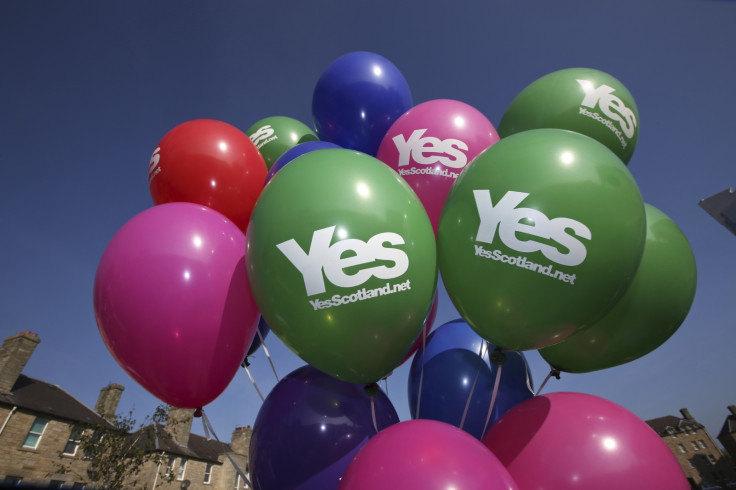Scottish Independence: Treasury Committee Warns of Higher Taxes and Borrowing Restrictions

Treasury Committee Chairman Andrew Tyrie has warned Scots that they'd face higher taxes, borrowing restrictions and immediate costs, due to the shortfall in the country's currency reserves, if they opt for independence in a week's time.
Tyrie lent support to Bank of England Governor Mark Carney, in a statement, after he reiterated that whatever currency arrangement is chosen, a separate Scotland would require "huge reserves."
"The Governor noted that £15bn (€18.9bn, $24.4bn) would be at the 'upper end of the range' that Scotland might reasonably inherit as reserves. Scotland would need a multiple of that. The comparisons with Denmark and Hong Kong in the Governor's note say it all," said Tyrie.
"Meeting the shortfall in reserves means that Scotland would, as the Governor also pointed out, face 'real fiscal costs'. Scotland's ability to borrow would be heavily restricted.
"Obtaining the reserves would mean much higher taxes or lower spending, or both, for years to come."
Scottish people will vote in an independence referendum on 18 September, 2014, and will be asked the straight "yes/no" question: "Should Scotland be an independent country?"
Carney said on 10 September, Carney warned voters that even if an independent Scotland keeps the pound after the referendum, without the support of a political union, it could create severe disruption to the country's economy.
Carney said that a "currency union needs fiscal flows and a lender of last resort" – all of which Scotland would give up if it breaks the 307-year old union with England.
Meanwhile, Lloyds, which is 25% government owned and owns Bank of Scotland, said it had already devised a contingency plan if the country became independent, which includes setting up "new principle legal entities in England".
RBS, which is 81% government owned, also confirmed in a lengthy statement that it has also devised a contingency plan, although chief executive Ross McEwan later clarified that this is "not an intention to move operations or jobs" out of the country.
"The Scottish banking sector as a proportion of the economy is currently huge. To have any reasonable prospect of retaining it, Scotland would need a massive multiple of its inherited reserves.
"RBS and Lloyds appear to have concluded that this would be unrealistic for Scotland even to attempt and that therefore a separate Scotland could not provide a credible guarantee for deposits. That is probably why RBS and Lloyds have announced that they would move their headquarters following Scottish independence. They would need to protect their customers and shareholders."
Scotland's financial services industry generates around £7bn (€8.8bn, $11bn) to £9bn for the economy and employs around 100,000 people.
The Scottish banking industry accounts for 13% of all banking employment in the UK.
Lloyds employs 16,000 staff in Scotland while RBS employs 11,500.
Bank of Scotland has 293 bank branches while RBS has 270.
© Copyright IBTimes 2025. All rights reserved.






















